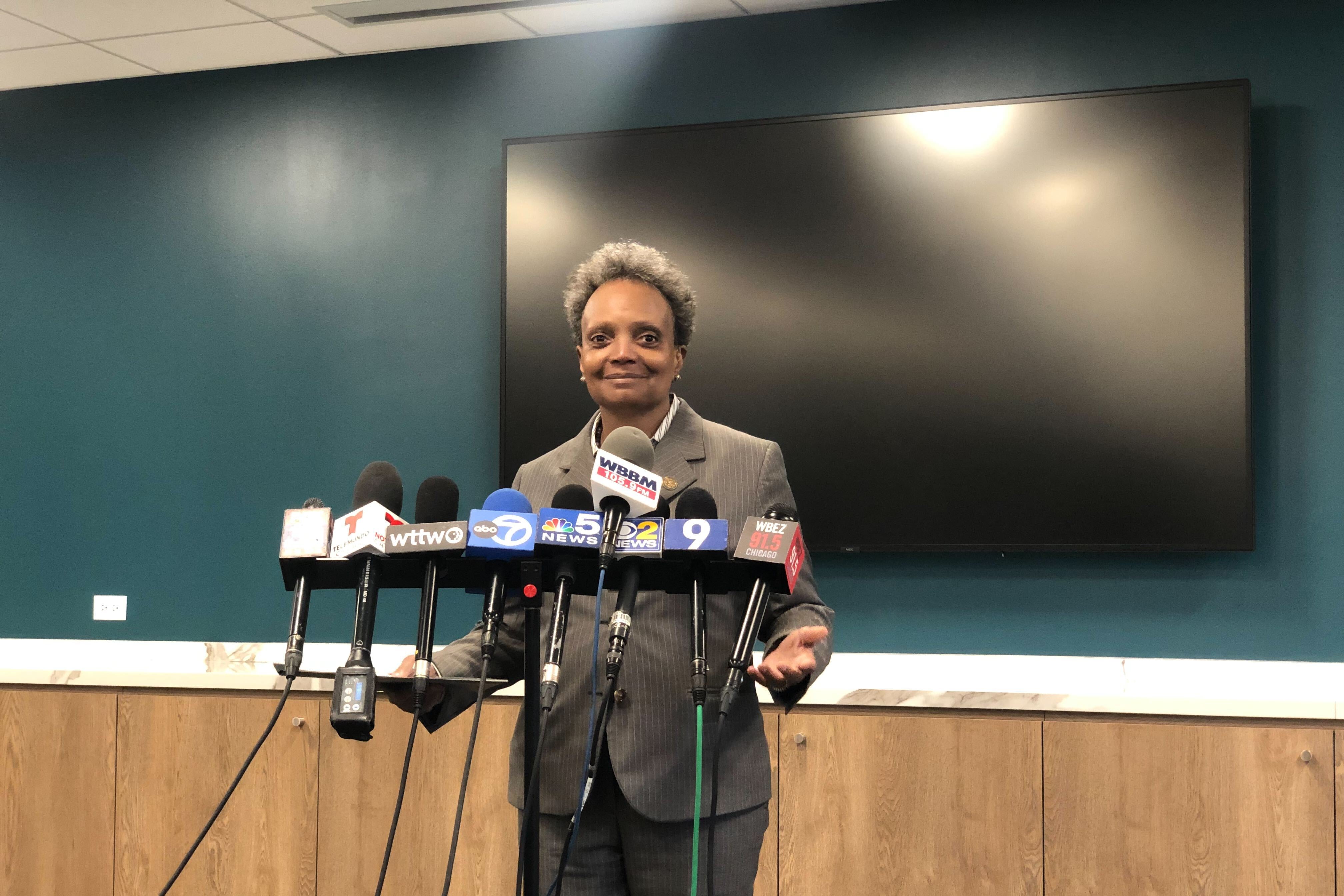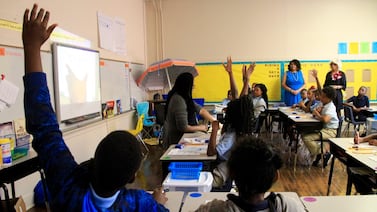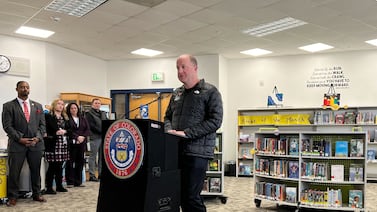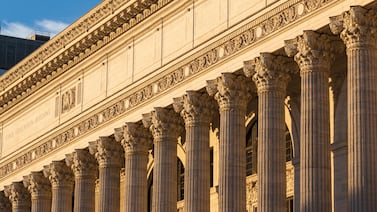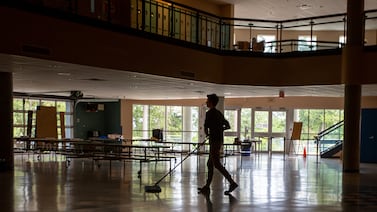One day after defending the practice, Mayor Lori Lightfoot said Thursday it was a “mistake” for her campaign to email educators at Chicago Public Schools and City Colleges of Chicago looking for student volunteers to help in her reelection bid.
The school district’s inspector general has opened an investigation, and the city’s Board of Ethics will look into whether the outreach violated the city’s ethics policy. Meanwhile, the American Civil Liberties Union’s Illinois chapter called the emails “inappropriately coercive.”
The Jan. 10 email from a deputy campaign manager to Chicago Public Schools educators implied that students who volunteered for Lightfoot’s reelection effort would get school credit. After the outreach was first reported by WTTW, Lightfoot drew criticism from her challengers in next month’s election and from others.
After initially saying Wednesday that the request for student volunteers was “common practice,” the Lightfoot campaign said it would alert staff that “a solid wall must exist between campaign and official activities.”
“There was zero, zero, zero coordination, coercion, or anything else between the campaign and CPS on this issue,” Lightfoot said at a press conference Thursday.
Lightfoot, who was elected in 2019 promising transparency and a more accountable government, said a staffer made an “honest mistake” in sending the emails.
But City Colleges of Chicago said it raised the ethics concerns with the Lightfoot campaign after receiving similar emails in August and consulting its ethics department.
“Following the Department’s guidance, City Colleges notified the campaign of CCC’s ethics policy and purged the emails from CCC accounts,” according to City Colleges.
City Colleges said it was not aware of any subsequent campaign emails, but was looking into the matter.
During Thursday’s press conference, the mayor said she met with the staffer and explained the severity of the situation but declined to fire the staffer, calling the incident a teachable moment.
“There was absolutely no nefarious intent on the part of the staff person,” Lightfoot said.
The mayor said she apologized to Chicago Public Schools CEO Pedro Martinez and Chicago Board of Education President Miguel Del Valle.
A copy of the Jan. 10 email to Chicago Public Schools employees was shared with Chalkbeat by the Chicago Teachers Union.
It’s unclear how many emails to Chicago Public Schools teachers and City Colleges of Chicago were sent out, but Lightfoot said her campaign was taking an accounting and would cooperate with investigations.
The district’s Office of the Inspector General said in a statement that it has opened an investigation into the emails “to determine which, if any, policies have been violated.”
The district’s ethical guidelines for political activity state that political campaigns should not use the Chicago Public Schools’ email system to solicit donations or volunteers.
Meanwhile, Steven Berlin, the executive director of the city’s Board of Ethics, said the matter will be on the agenda for the board’s next meeting on Jan. 23, which will be live-streamed via Zoom.
The city’s Office of Inspector General also said it’s tracking the issue, in consultation with the district.
Nora Flanagan, an English teacher at Northside College Prep, said she found out about the email from colleagues. So far she’s heard from about eight or nine teachers or staff in the building who received the email.
“In 25 years, I have never seen anything like this,” Flanagan said. “I’ve never seen this happen from any elected official, at any level.”
Teachers who received the email are scared to talk to the press for fear of retaliation, she said. Her colleagues called the emails “wildly unethical, probably illegal,” she said.
District employee email addresses are public information, and often listed on school websites, the district noted. Email addresses can also be obtained through a public records request, though there is no record of such a request from any political campaigns, the district said.
The Chicago Election Board had not received any complaints as of late Thursday morning, said spokesperson Max Bever. The election board isn’t authorized to investigate or penalize candidates over city ethics rules, Bever said.
Colleen K. Connell of the ACLU of Illinois said in a statement that the Lightfoot campaign’s email outreach to teachers was “inappropriately coercive and raises First Amendment concerns.” She noted the U.S. Supreme Court has ruled that elected officials cannot use their office to pressure public employees to participate in political campaigns.
“Because the Mayor has the ultimate authority over the Chicago schools, teachers may feel coercion in this ask from the Mayor’s campaign or fear negative consequences for lack of participation,” Connell said.
She urged the mayor to make clear that no one in the city should feel compelled to participate in her campaign.
The student advocacy group Good Kids Mad City, a frequent critic of the mayor, also bashed her campaign’s move. Arseny Acosta, one of the group’s leaders, said it’s “morally wrong” to solicit students to volunteer by dangling a chance to earn credits.
“At the end of the day, this free labor would only benefit Lightfoot,” she said.
In New York City in 2021, then-mayoral candidate Eric Adams drew criticism from parents and others after his campaign reached out to educators with its own request to offer students who volunteered on the campaign school credit, according to reporting in the New York Post.
This story was updated to include a comment from Good Kids Mad City.
Mila Koumpilova is Chalkbeat Chicago’s senior reporter covering Chicago Public Schools. Contact Mila at mkoumpilova@chalkbeat.org. Mauricio Peña is a reporter for Chalkbeat Chicago covering K-12 schools. Contact Mauricio at mpena@chalkbeat.org.

